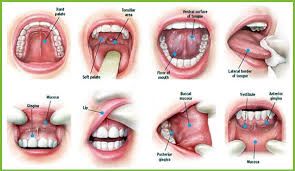Oral Cancer Screening

Following a thorough dental cleaning and exam at Boston North Dental Associates, you will notice your dentist and hygienists studying the far corners of your mouth and palpating your neck and chin. We are not performing a relaxing massage, but are conducting one of the most important aspects of your exam: an oral cancer screening.
More than 43,000 Americans will be diagnosed with oral or pharyngeal cancer this year, 8,000 of which will lose their lives to this devastating disease, according to the
Oral Cancer Foundation. Oral cancer isn’t difficult to diagnose, but there isn’t a comprehensive program in the U.S. to opportunistically screen for the disease. Therefore, the cancer often is discovered late in its development. Click
here to learn more
Routine cleanings and exams at Boston North Dental Associates include an oral cancer screening because we believe these appointments provide the optimal opportunity to not only diagnose and monitor the health of your teeth, but assess the health of your mouth and pharynx as well.
Your mouth contains many types of tissues, all of which can develop cell-division anomalies that lead to some form of cancer. Oral cancer screenings require a trained eye and the use of advanced technology to spot the disease in its earliest, most treatable stages.
Risk factors that increase risk of developing oral cancer include:
- Alcohol consumption
- History of oral cancer
- Human papilloma virus infection
- Poor diet
- Sun exposure
- Tobacco use
Symptoms of oral cancer include:
- Lump or mass inside the mouth or neck
- Pain or difficulty when swallowing, speaking or chewing
- Wart-like masses
- Persistent hoarseness
- Oral or facial region numbness
- Persistent unilateral earache
Keep in mind that active oral cancer does not always produce symptoms in its early stages, which is why routine examinations are imperative.
Here is an overview of our oral cancer screening:
- Tongue examination – The underside and lateral borders of the tongue are some of the most common areas to be affected by oral cancer.
- Floor of mouth palpation – The floor of the mouth is rich in lymph nodes and salivary glands, which account for approximately six percent of head and neck tumors. We use our fingers to palpate under the tongue and chin in search of abnormal masses. It is important to diagnose tumors originating in this area, as they can easily spread to distant areas of the body by way of blood and lymph vessels.
- Cheek examination- Your dentist will examine the appearance of your cheek tissue and size of the salivary glands in your cheeks, as salivary gland backup can be caused by cancerous growths.
- Palate and throat examination- This portion of the cancer screening is performed with your mouth open, so your dentist can examine the rich salivary gland and lymph node populations of the tongue’s surface, roof of the mouth, soft palate, tonsils and upper throat.
You shouldn’t be immediately alarmed if we find something during an exam. Many factors can contribute to visual and palpable tissue abnormalities, including burns from hot foods, trauma from cheek or tongue biting, and inflamed lymph nodes from a recent sinus infection. Abnormalities resulting from such factors are considered benign, or noncancerous, but must be monitored or tested before being ruled as such.
The first course of action is to photograph the lesion or mass and follow up in two to three weeks. Lesions caused by trauma will have resolved or improved within this time frame. Lesions that persist or worsen may still be benign, but will warrant a second opinion and/or biopsy – removing a small amount of tissue to perform additional testing.
Patients should make sure they attend at least two dental cleanings and checkups per year to keep their teeth and mouths healthy and have lesions persisting for more than 14 days examined. Oral cancer screenings are a means of catching serious disease in its earliest stages so our patients can have the best chance for successful treatment.
